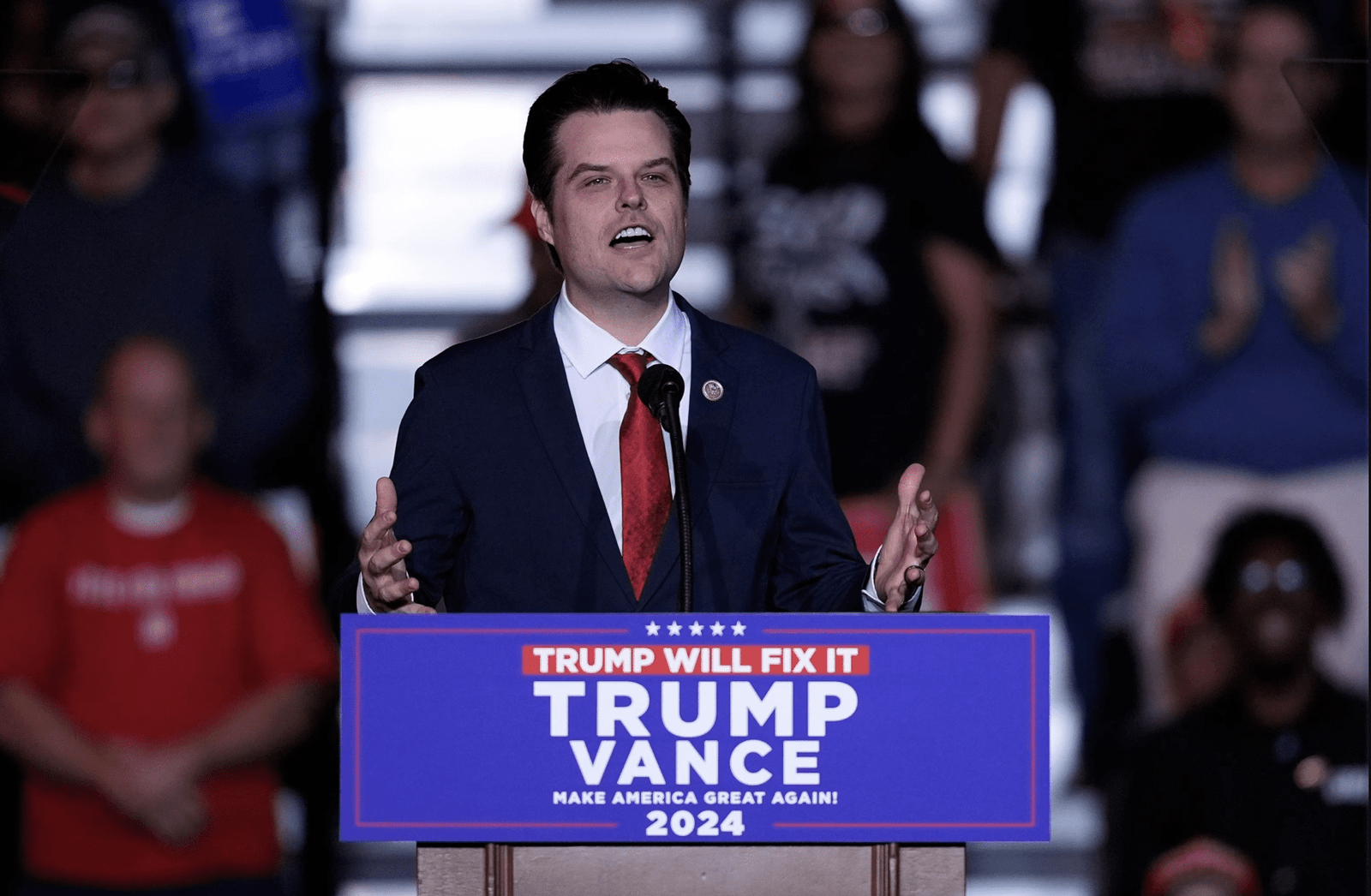Trump Presidency
Trump Shocks Washington: Appoints Controversial Matt Gaetz as Attorney General in Defiant Move Against Establishment


Donald Trump’s appointment of Matt Gaetz as Attorney General has ignited significant controversy, showcasing the president-elect’s determination to push back against what he views as a biased establishment. Matt Gaetz, a Florida Republican known for his loyalty to Trump and his confrontational approach, exemplifies Trump’s strategy of challenging traditional norms and intensifying his base’s support by provoking outrage among opponents. The choice of Gaetz is consistent with Donald Trump’s campaign promises to overhaul the government, particularly by targeting agencies he believes have been weaponized against him and his followers.
Matt Gaetz’s background has only intensified the backlash. Recently under investigation by the House Ethics Committee and previously scrutinized by the Department of Justice, he has faced accusations of sexual misconduct, illicit drug use, and the acceptance of improper gifts. Although the Justice Department declined to pursue charges, the cloud of controversy surrounding Gaetz’s past has made his nomination contentious. This has led many to question whether Trump’s choice was aimed at placing a loyalist in a high position rather than prioritizing an unbiased administration of justice.
Donald Trump’s appointment aligns with his broader strategy, which includes other controversial picks like Tulsi Gabbard for director of national intelligence and Fox News anchor Pete Hegseth as defence secretary. Tulsi Gabbard, a former Democratic presidential candidate and a military veteran, has expressed scepticism toward intelligence agencies, mirroring Trump’s concerns about political bias within these institutions. Although a decorated veteran, Pete Hegseth lacks experience in national defence strategy, raising concerns about his qualifications for such a significant role. These choices reflect Trump’s priority on loyalty and ideological alignment over traditional qualifications.
Donald Trump Taps Mike Huckabee as Israel Ambassador: Bold Move or Escalation in Gaza?
Washington’s reactions have been polarized. While Trump’s supporters view these choices as bold moves to “drain the swamp” and eliminate corruption within governmental institutions, many establishment Republicans and Democrats express deep concern. Notably, Senators Lisa Murkowski and Susan Collins voiced shock over Matt Gaetz’s nomination, underscoring the rift even within Trump’s party. Some Republicans worry that these selections could jeopardize the rule of law and undermine the credibility of US institutions.
For Donald Trump, however, these reactions may serve his political objectives. The president-elect has long thrived on the perception of being an anti-establishment disruptor, and his latest nominations align with his promise of “retribution” in his second term. Supporters argue that this approach is necessary to dismantle what they see as biased structures, while critics contend it risks eroding fundamental democratic principles.
Ultimately, Matt Gaetz’s confirmation will likely hinge on Republican support in the Senate, where tensions are already surfacing. Donald Trump’s unwavering stance on these appointments suggests he is committed to redefining his administration in stark opposition to Washington norms, regardless of the potential risks to his political relationships or legacy.



